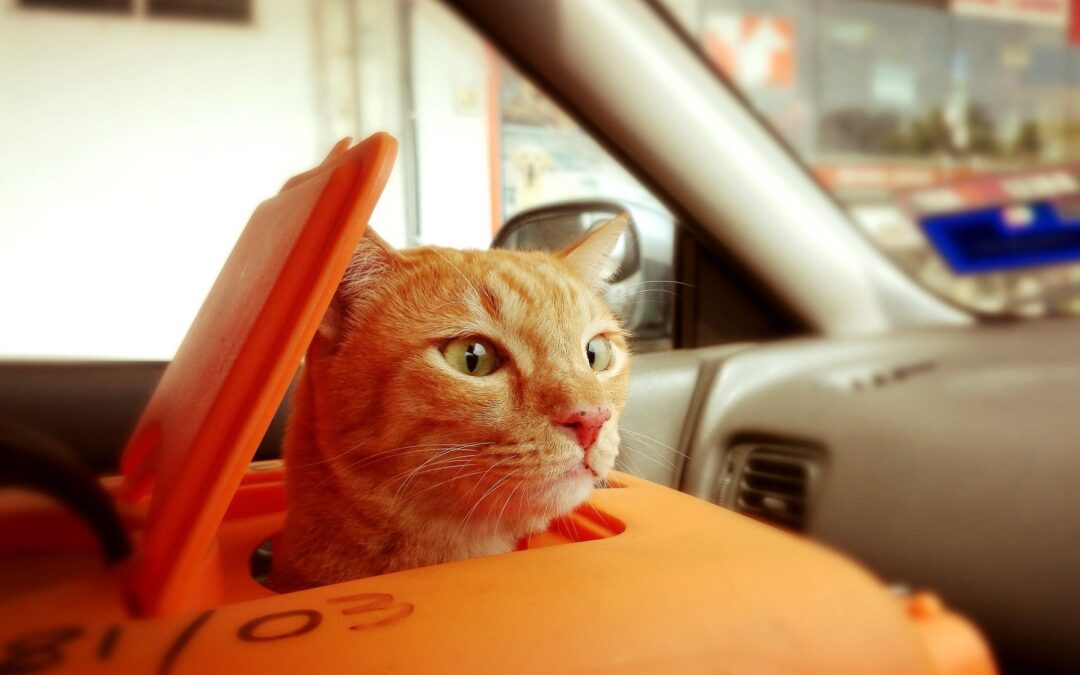Veterinary authorities in Poland are investigating reports of large numbers of cats dying from an unknown illness, and have warned owners to keep their pets inside. Initial tests by the chief veterinary inspectorate have found that some of the deceased animals had avian flu.
Over the past two weeks, numerous instances of otherwise healthy cats suddenly and inexplicably becoming ill – and in many cases dying – have been reported throughout Poland.
The affected animals have reportedly suffered neurological and respiratory symptoms, including seizures and difficulty breathing. This has led to concerns that some type of contagious illness is spreading.
Z przebadanych jedenastu próbek pobranych od martwych zwierząt w przypadku dziewięciu potwierdzono wirusa ptasiej grypy.https://t.co/zENdTgkM8N
— tvn24 (@tvn24) June 27, 2023
According to Paulina Grzelakowska, director of the Tri-City Veterinary Clinic in Gdańsk in northern Poland, the disease has a sudden onset and progresses very rapidly.
“The animals die in a short time,” she told broadcaster TVN24, adding that “cats of all ages are affected, both pedigree and non-pedigree, those kept indoors and outdoors, those vaccinated against infectious diseases and those that have not been vaccinated”.
Grzelakowska noted that the symptoms suffered by the animals – including a condition called thrombocytopenia and high levels of liver enzymes in the bloodstream – do not give a clear indication of what exactly they could be suffering from. “We are trying to introduce various treatment schemes, but none of them are effective.”
The chief veterinary office for Pomerania province, where Gdańsk is located, and the region’s veterinary chamber have revealed that, out of 28 cats brought to clinics in the wider Gdańsk area in last two weeks with such symptoms, 25 have since died.
On Friday, the national chief veterinary inspectorate, GIW, announced that there had been similar reports in several cities and that it was “closely following the development of the situation”.
Yesterday, GIW announced that, out of 11 samples from such cats that had so far been tested, nine were positive for H5N1 influenza, a type of avian flu. Those samples had come from the northern Tricity area, which includes Gdańsk, but also the cities of Poznań and Lublin in the west and east of Poland respectively.
📢‼️W odniesieniu do licznych publikacji medialnych dotyczących zachorowań kotów🐈⬛ w kilku miastach 🇵🇱 Główny Lekarz Weterynarii wydał nowy komunikat:
Szczegóły ➡️https://t.co/nPXQTpV85j
— Główny Inspektorat Weterynarii (@WetGIW) June 26, 2023
“Further detailed testing of the genetic material of the viruses is ongoing,” said GIW, adding that the origin of the virus, which “has caused illness in seagulls in recent weeks”, is still unknown.
In yesterday’s statement, GIW announced that “work is underway to establish a protocol for monitoring the disease in cats in order to collect more detailed data on its course and incidence”.
To avoid risk of infection, it advises cat owners to keep their pets indoors, to thoroughly wash with detergents any balconies and terraces that cats have access to, to prevent contact between cats and wild animals, to only feed cats from known sources, and to wash hands and footwear upon returning home from outside.
The domestic cat has been classified as an invasive species by Poland's leading scientific body.
However, the environmental protection agency reassured concerned pet owners that cats have not been added to the official Polish and EU invasive species lists https://t.co/5Ozf4tiPYy
— Notes from Poland 🇵🇱 (@notesfrompoland) July 19, 2022
Meanwhile, cat owners themselves have banded together in an effort to gather information on the illness. A Facebook group called “Mystery cat disease – investigation group” (Tajemnicza choroba kotów – grupa dochodzeniowa) has amassed over 5,300 members just six days after being set up.
The group calls for “people who may have experienced a new mystery disease in their cats” to share where in Poland they are, what their sick pet has eaten, which symptoms it has had, and what treatment it has received.
“The more data we have, the sooner we will know what is going on. It is possible that linking cases will shed new light,” the group’s description reads. “There has to be a common denominator.”
Na Fb pojawila się grupa "Tajemnicza choroba kotów-grupa dochodzeniowa". Stamtąd prośba o wypelnianie ankiety (RT 🚨), szczególnie jeśli kot nie przeżył. Tak, to trudne, ale może pomóc. "Im więcej danych tym szybciej dowiemy się co się dzieje." https://t.co/ZzuohxUqSo
Plus: pic.twitter.com/lyXSZNZtrP— Basiulowo (@basiulowo) June 24, 2023
Main image credit: Stratman2/Flickr (under CC BY-NC-ND 2.0)

Anna Hackett is an assistant editor at Notes from Poland. She is a recent graduate of European Studies from Trinity College Dublin and has had previous journalistic experience with the Irish Independent News & Media group.




















